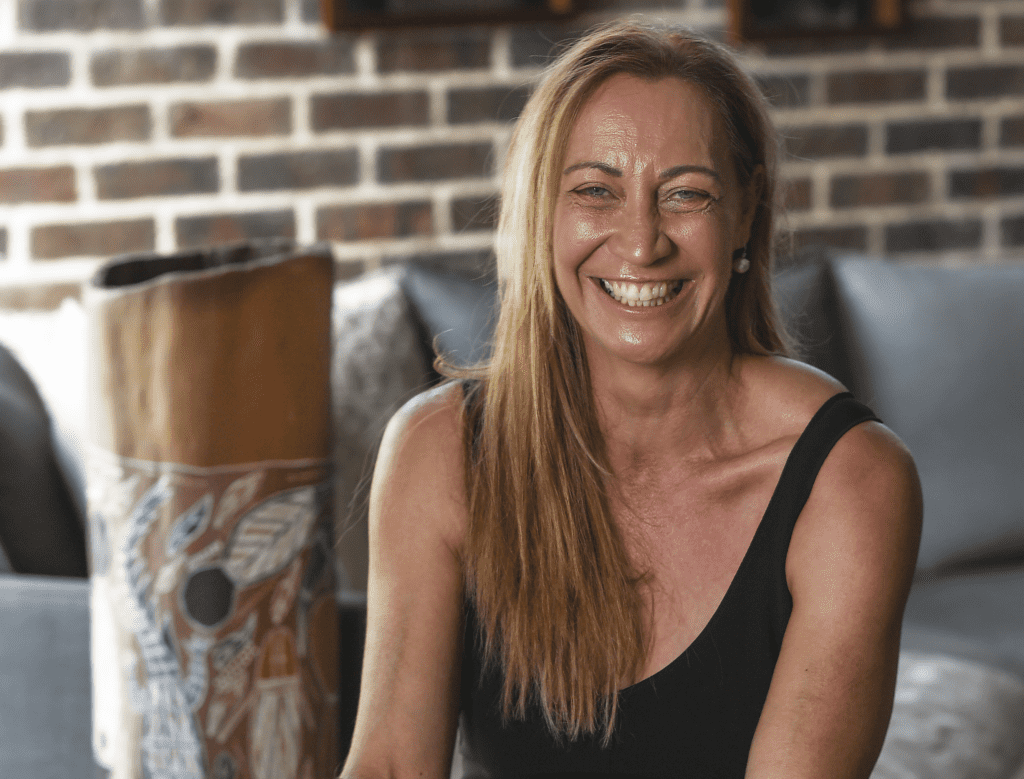Indigenous Psychological Services
Dr Tracy Westerman AM, Managing Director
2021 has been a tough year for many, with the long-term impacts of the pandemic and lockdowns taking their toll mentally and emotionally. It was also a year when many organisations were forced to review processes, policies, and organisational values to keep their employees supported and engaged. First Nations Foundation spoke to Dr Tracy Westerman AM, managing director of Indigenous Psychological Services about mental health in 2021, the impact of paternalism, how organisation can better support their First Nations employees and women especially.
To hear more from Tracy, head to the First Nations Foundation podcast Beyond the Gap – episode 5: “Understanding Indigenous cultural obligations in the workplace”.
What have you noticed about the collective state of mental and emotional wellbeing this year, generally?
Well obviously, with a global pandemic it is always going to place additional burden on people’s mental health. You would expect anxiety to increase purely due to the realities of how the virus is transmitted the unknown qualities surrounding it and the significant behavioural responses that require constant checking, washing of hands etc. This general worry can feed anxiety. In addition, isolation strongly predicts depression of course – the more isolated you are, the more depressed you get, and lockdowns can exacerbate this if you do not create different forms of outlets.
However, there are significant individual differences in terms of how people will cope. We are seeing now with COVID spreading into remote areas in the NT and NSW for the first time and this is where the reaction of Governments adds additional trauma layers to the historical treatment of Aboriginal people. We know that our communities were, from the outset, seen as the most obviously vulnerable based on the health stats as well as the isolation from resources and that health literacy which is always challenging with a novel virus would be more so with cultural and language barriers.
The vulnerability was managed by the border closures; however, the vaccine roll out has done little to ensure that Aboriginal people feel important and valued. Governments have again failed our most vulnerable. We are playing catch up with vaccine rates and with getting good messaging out into communities. How this will impact on mental health will take a while to fully appraise.
What do executives and organisations need to be most mindful of regarding the mental health of their First Nations employees?
There is a significantly greater burden on Aboriginal employees than non-Aboriginal. The first is the systemic racism that still continues, mostly in relation to paternalism. I mentor significant numbers of Aboriginal psychologists who continue to tell the same stories-that their qualifications are always seen as ‘less than’ due solely to their Aboriginality. That they are not taken as ‘seriously’ despite in many instances being more academically qualified. It’s why I say that paternalism is our greatest threat to black progress.
The other additional reality is that there are significantly greater cultural stressors that exist with Aboriginal people who are in the workplace. They are having to not only manage full-time work but also navigate their way through a system that often does not speak to the needs of their people and communities. Additionally, the community will often see them as being responsible for these deficits in systems. That creates such a burden.
What can organisations do right now to better support First Nations employees?
Ensure that cultural conversations are ‘normalised’ across the organisation so that cultural competency essentially becomes everybody’s business. This is particularly the case when you have few Aboriginal employees who often feel as if they are the ‘cultural awareness’ trainers. There is a greater level of stress on Aboriginal staff to educate others in Aboriginal culture. So many of these burdens are often not covered in duty statements. This needs to be validated by the organisation as it results in significant burnout for staff.
Are there further things to understand for women especially?
Women are often both the carers and the providers – fulfilling a role as carer for family members and/or children while also often being the only people working in a big extended family. Cultural obligation to care for kin is such a beautiful part of Aboriginal culture but has become harder with the additional burden of having to work.




